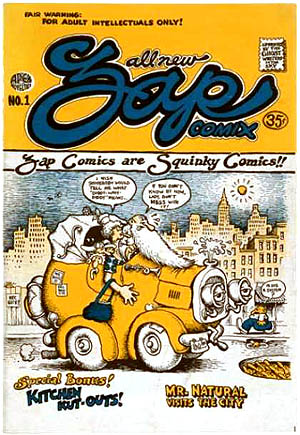You’re in for it now… around the block with speculative fiction
Okay, since I gave my $5 to Wikipedia for the year I suppose that gives me the latitude to freely paraphrase them on my topic. Yes, speculative fiction is my topic. I own it. Thank you.
DATELINE: Ashland Oregon April 24, 2017: Here’s 20 minutes of listenable and literate fun with Morning Show hosts Ellen Morgan-Hufft and Michael Niemann on topics around speculative fiction and the upcoming release of Baldwin’s latest science fiction novel, Aliens Got My Sally.
In these days of transgenre fiction, speculative fiction generally means narrative fiction having super-tech, supernatural, or futuristic elements. That takes in a lot, from science fiction, fantasy, horror, alternative history, magic realism, and superhero fiction… to really, whatever occurs to the author (e.g., me) at the time.
With the formalities out of the way (given short shrift, you might say, and you’d be right), I want to rag on about what is meaningful to me in this genre-on-steroids. Translation: here’s another dose of my valued opinion about something you love. Speculative Fiction.
First of all, what my storylines are about for me is one thing and one thing only: Does The Human Race Deserve To Be Saved? I know everyone has their own answers to that, but my belief is that this question is one that we need to hold before us at all times. It’s my way of saying what Socrates said, about the unexamined life, etc.
Speculative fiction in its full breadth also takes in mysteries and alternate histories. This fact was borne in on my fevered adolescent consciousness around 1955 from the pages of the first pulp fiction magazine, Argosy (1882 – 1978), in a Ray Bradbury tale called A Sound of Thunder. Argosy in those days had the look of a man’s magazine to this kid from California, but there among the guns and ammo and marlin fishing with Ernest Hemingway was a story that took on the paradoxes of time travel. One squashed butterfly a million years ago, and those time travelers returned to a present that had become unrecognizable to them. Did that wake me up? You bet your hyperdrive it did.
Attributed to Heinlein, speculative fiction was a collective description for Sci-Fi, Fantasy and Horror. Buck Rogers. Tarzan. The Raven. Miss Perigrine’s Home For Peculiar Children, even horror and magical realism such as The Shining. Brave New World, oh yeah.
If you look at such titles in turn, you’ll find they all pivot on a certain belief the reader must swallow (willing suspension of disbelief puts it more politely) to accept the plot, and thereby take value from what the protagonist does to save herself.
What Speculative Fiction is About for Little Me
In my novels and short stories, what I look for is the unknown. I find interesting unknowns on the fringes of science, the paranormal, the occult, quantum biology, and maybe in the latest diet craze. My 2013 novel, Next History, asked the question: What would tomorrow be like if we unearthed humanity’s origin story exactly as it was, not passed down verbally across hundreds of generations? That single What If let me concoct a lot of interesting how-tos — How would we find out? (The whales.) Where is that accurate history kept? (The Akasha.) And where is the complaint department? (In the courtyard of the U.S. Pentagon.)
In my 2015 novel, Halcyon Dreamworlds, I asked the question: What would the world be like if we all got hooked on a seductive and hyper-realistic online game? (An MMORPG to gamers.) And what if some baddies had figured out how to pervert that game to control our thoughts in real life, and decide whether you or me should die or live? Don’t look now, but that motif is happening as we speak in numerous guises, and one of them is the outrageous work of fiction that government has become. Those gameworld identities become the intense addictions that you and I will weave through every moment of our waking and sleeping lives in such a future, whether we are aware of them or not.
Speculative. Fiction. Does humanity deserve to survive?
By Zap Comix #1” at The Grand Comics Database.  On your left, a comic version of speculative fiction.
On your left, a comic version of speculative fiction.
Okay, I said it. Intense Addictions. So here’s a tidbit for you. The addictions I refer to are not uniquely mine. This is not a secret tell-all of what I might think about or do in some spider-webbed basement of the id. These addictions are the ones we all share, and the truly horrifying part is that we’re largely unconscious of what those addictions are, where they come from, and what they make us do. Mostly we are unaware of how manipulated we have been and continue to be. So, to quote Robert Crumb in the first issue of Zap Magazine, “Kitchy-koo, you bastards.”
But take heart, we’re all in it together. I do absolutely think that humanity is worth saving, which is why I choose in my speculative fiction to shine a bright light on our various foibles and beliefs as I take your mind on a ride to the other side of…
…fixing it. Are you in?
Reviews :: Next History – Speculative Fiction
Reviews :: Halcyon Dreamworlds – Speculative Fiction
Excerpts :: Aliens Got My Sally – Speculative Fiction

